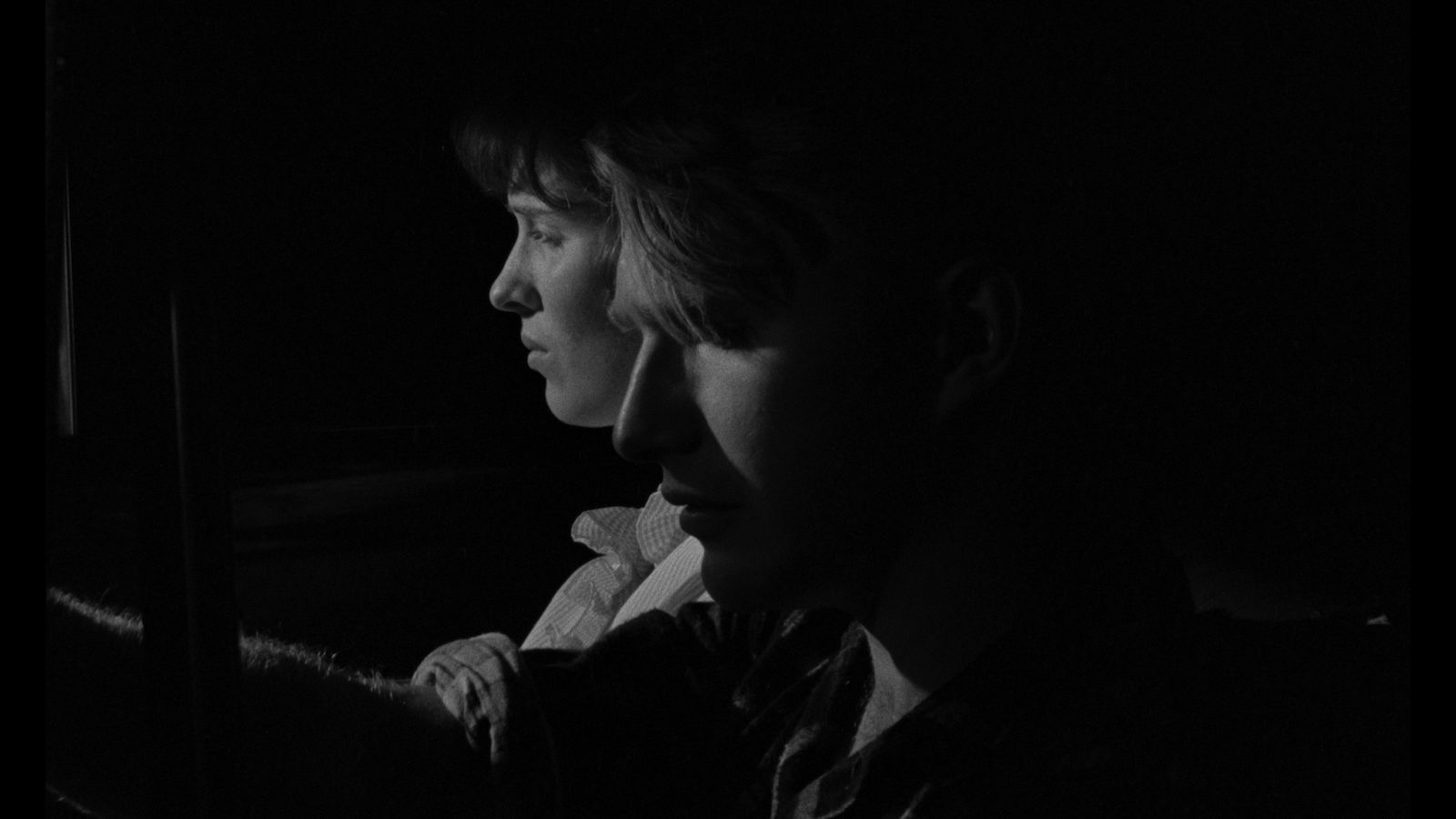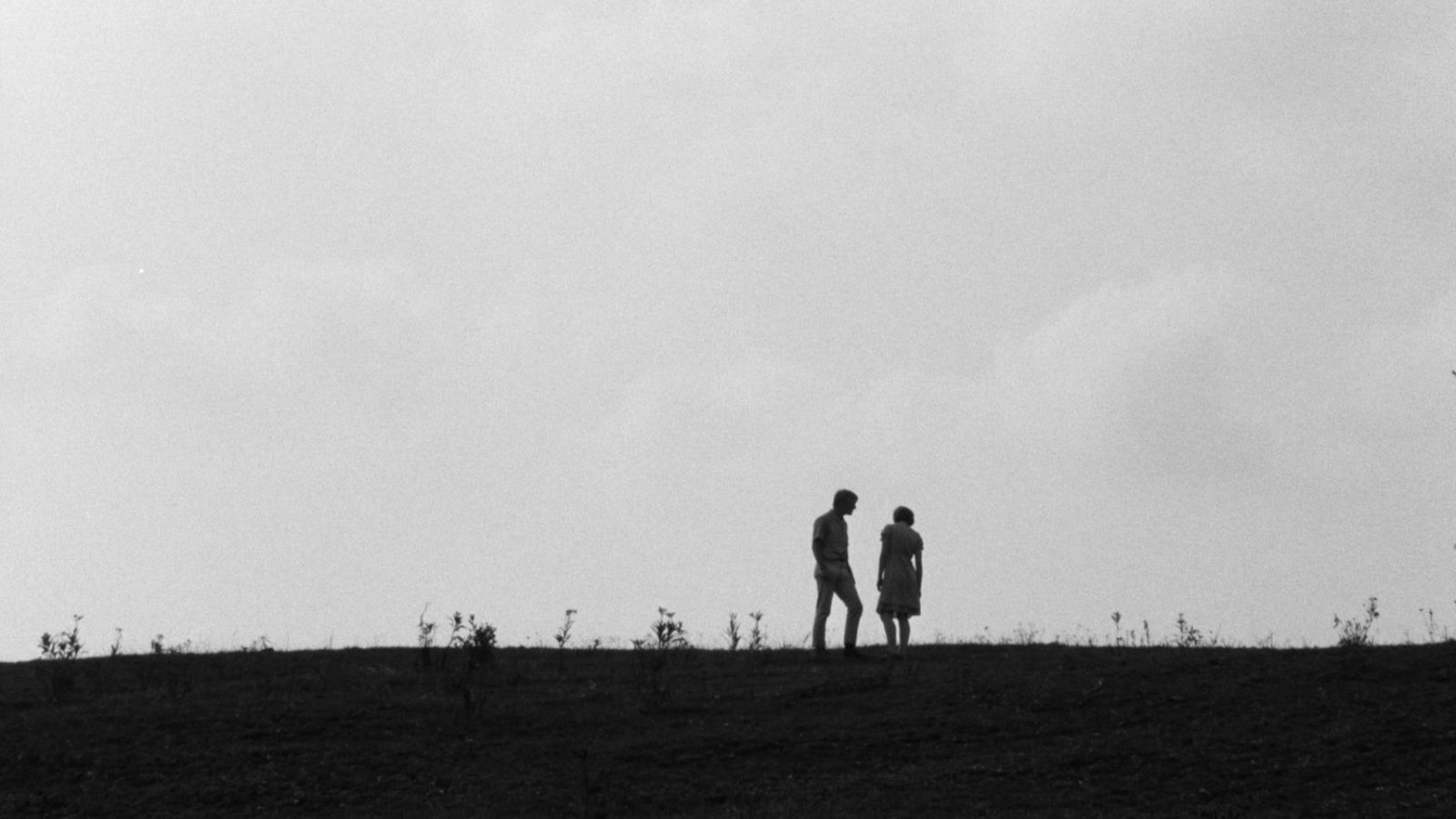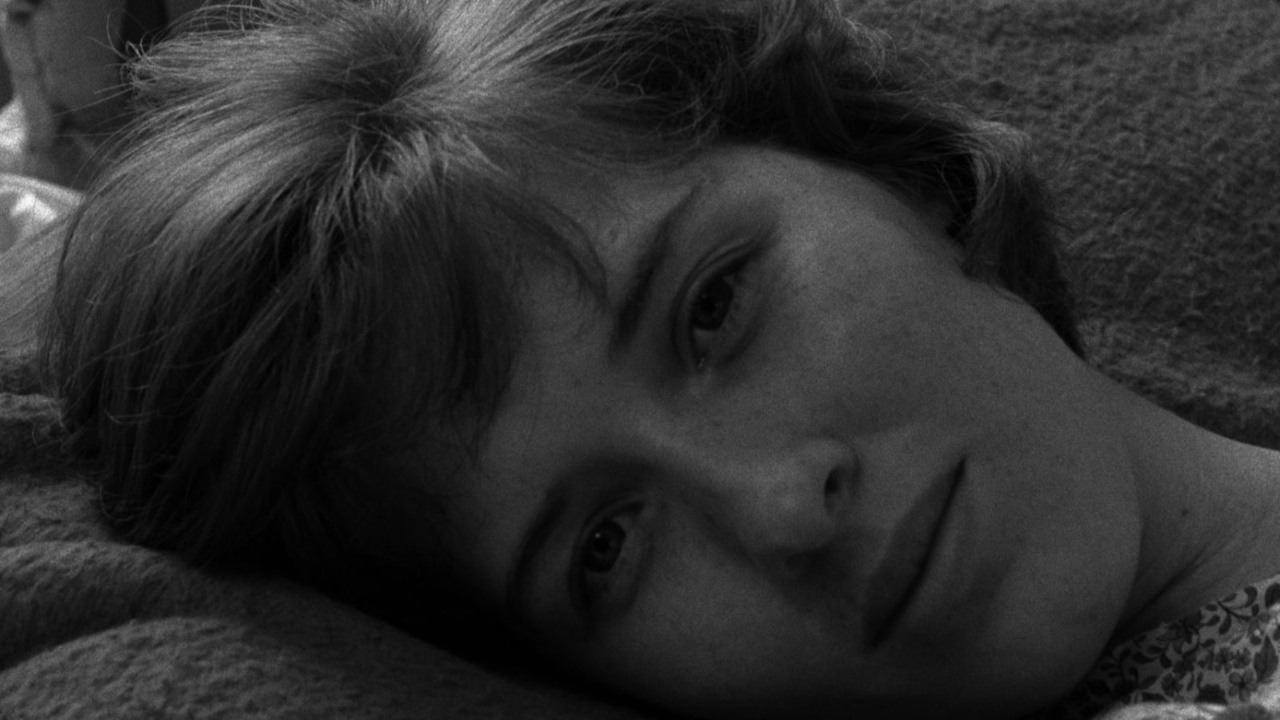At one point in Synecdoche, New York, the Charlie Kaufman-stand-in Caden is giving his actor — a twenty-something man playing the role of Willy Loman — a note in his production of Death of a Salesman. “Try to keep in mind that a young person playing Willy Loman thinks he’s only pretending to be at the end of a life full of despair. But the tragedy is that we know that you, the young actor, will end up in this very place of desolation,” he tells him.
That ambiguity is present everywhere in Spring Night, Summer Night, a long-lost American film shot with (very) non-professional actors in the 1960s. The plot hinges on a rural Southern family made up of Jessica and Carl, half-siblings, and Mother and Father. (Father is played by John Crawford, whose filmography of bit parts — including what must be a record-setting twelve appearances on Gunsmoke as twelve different characters — is the closest thing to a career anyone in Spring Night had.)
 For the first quarter, the film seems like a moseying depiction of the desperate boredom of the small southern town: there is a fight around a dinner table; a grandmother goes to a revival meeting; the youths dance to fiddle music. Then, suddenly, returning home from a bar, Jessica and Carl have sex.
For the first quarter, the film seems like a moseying depiction of the desperate boredom of the small southern town: there is a fight around a dinner table; a grandmother goes to a revival meeting; the youths dance to fiddle music. Then, suddenly, returning home from a bar, Jessica and Carl have sex.
Just as suddenly, it’s some time later. Carl has run off and is hitchhiking back to town, and Jessica is pregnant. Father is circling town and interrogating teenagers, trying to figure out who the baby’s father is, while Mother drinks with her lover.
It’s a desperately melodramatic plot, and one that, if a northerner had written it, would reflect some of the laziest stereotypes about the rural south. But Spring Night‘s narrative membrane isn’t taut enough to ever really feel melodramatic. (There’s an eddy of tension around Carl running away and not helping out during the summer; when he and Father finally meet again at the end of the film, it’s barely mentioned and immediately defused.)
 Instead, like the audience in Kaufman’s film, you try to interpret how much of the irony of the character is at different discursive levels. How much do the actors and director know about how a national U.S. audience would interpret their depiction of rural life?
Instead, like the audience in Kaufman’s film, you try to interpret how much of the irony of the character is at different discursive levels. How much do the actors and director know about how a national U.S. audience would interpret their depiction of rural life?
Did they anticipate that a northerner would see a story of siblings having sex and feel like some of their subconscious assumptions were justified? Is the constant questioning of Jessica and Carl’s blood relationship — Mother is not Carl’s mother, and it is suggested but never confirmed that Father isn’t her real father — an attempt to consciously play with these assumptions?
I ended up realizing, strangely, that my barely-conscious assumptions about the rural south led me to be more surprised by the open adultery in the film than the incest. Is that a conscious subversion on the part of the filmmakers?
A melodramatic plot in a major motion picture explains itself: It’s what the studio knows people want, and they want to sell as many tickets as possible. But a melodramatic plot in an independent film with openly non-professional acting, a movie that seems not to be aiming at wide release, complicates things in a quietly fascinating way. Perhaps there is nothing metatextual to Spring Night, Summer Night, but it’s hard not to wonder.

